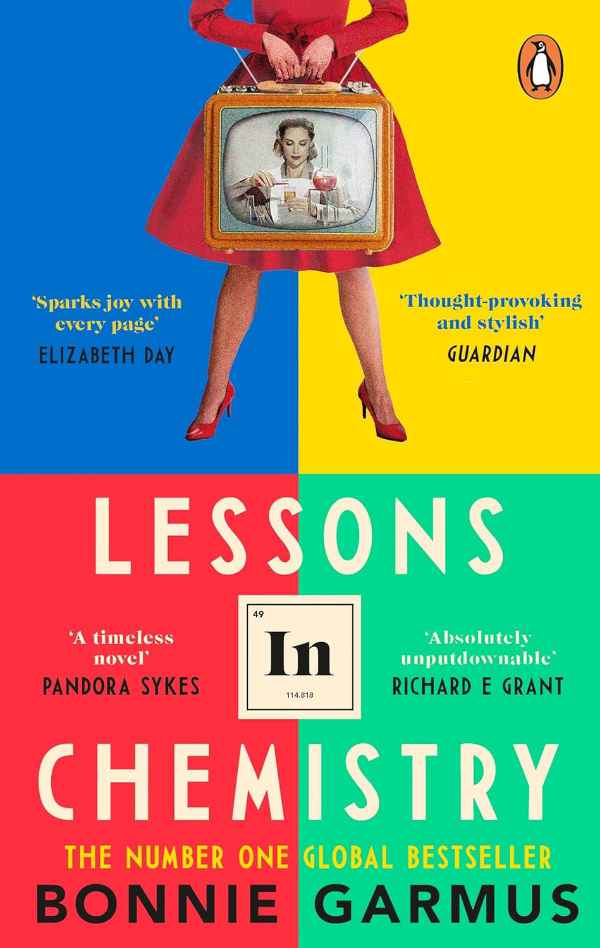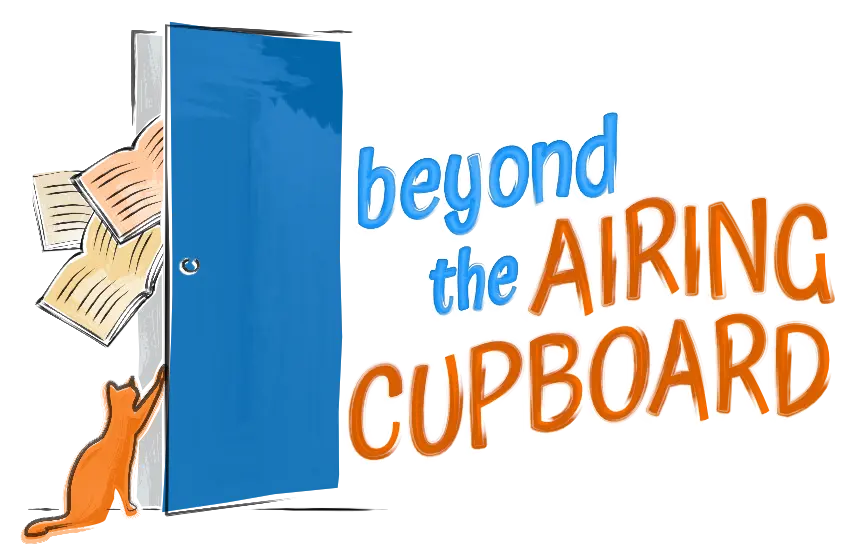I watched Lessons in Chemistry on Apple TV. I had no idea what it was all about but I was soon absorbed in the story. The first part was outrageous in its misogyny and rampant sexism and after that it was simply tragic. However, 2 people who had read the book confidently reported that the story was extremely funny; laugh out loud funny. Indeed, many of the short reviews in the blurb on the book agreed. I could only conclude that the book was very different from the television adaptation. Obviously, I had to read it.

We are in 1950s America and Elizabeth Zott is trying and failing to undertake scientific research and earn a living. Everything is against her, simply because of her sex. She is on a lesser pay scale, she is patronized, not eligible for promotion and sexually harassed. Having just watched series 2 of The Gilded Age it reminded me of the episode about the building of the Brooklyn Bridge in 1883. Without it being publicly known, Mrs. Roebling was responsible for the engineering of the bridge and not her husband and yet she was never allowed to be acknowledged. It was decided that people would not trust the safety of the bridge if they knew it was designed and engineered by a woman. Move forward 70 years and it really didn’t feel that much had changed at all.
Elizabeth, against all the odds, finds her soul mate, Calvin Evans. He is a famous scientist whose research is fully funded. He is feted and celebrated and he falls in love with Elizabeth. The witness to this happening is ‘Six-thirty,’ a dog who has turned up on their doorstep (at 6.30!) and chooses to stay. All three characters have difficult and complicated back stories which are revealed as the narrative moves forward.
In the book, the dog takes a larger part than in the TV version as he shares his fears and feelings with the reader. Six-thirty was part of the accident that kills Calvin and he will never forgive himself.
I liked the way the author had used the device of allowing the dog to narrate. It is rather beguiling and I am perfectly happy with some magic realism. Having read Elif Shafak’s ‘The Island of Missing Trees’ where one particular tree has a major part in the story telling, to receive the thoughts of a dog does not cause a problem for me.
Elizabeth meanwhile is engulfed in grief and for a time does not realise she is pregnant. Madeline (Mad), her daughter by Calvin, is probably my favourite character in the story. Her super intelligence makes it hard for her to fit in at school and she asks questions that her teacher isn’t comfortable with, maybe because she is unable to offer any reasonable answer. Elizabeth also finds she is unable to answer all Mad’s questions about her father and there begins a trail of hunting for Calvin’s earlier life, led from the front by his daughter.
Feeling that she should put Madeline in a school that might better suit her educational needs, Elizabeth has to find work that pays well. This turns out to be becoming a presenter of a late afternoon cookery show: Supper at Six. Here are the titular ‘Lessons in Chemistry.’ Cooking is of course science. It is about what scientific process will occur if you heat an ingredient or mix particular substances together, but most cookery shows do not follow this approach, whether we are thinking of programmes in the 1950s or indeed today. Her boss at the studio is at a loss. He hates her refusal to wear tight dresses and frilly aprons and he tells her the audience will switch off when she uses chemical terms and vocabulary. The mainly female audience however love to see Elizabeth wearing trousers and begin to feel empowered by the way she talks to them. She is a huge success. Madeline though is not impressed and points out to her mum that she is a scientist and should be doing research in a lab not presenting a cooking show. The dilemmas with which mothers have constantly struggled: work, home, money, children.
There are several differences between the book and the TV episodes but both are, in my opinion, exceptionally good, being entertaining and interesting. Apple TV apparently does not feel the need to appeal commercially to a large audience as it is not a media company, unlike Disney and Netflix. The result is that it can focus on heavy issues if it so chooses and that’s maybe why the 1950s treatment of women is hit on so very hard in the TV episodes by the producer and star Brie Larson. As for the ‘laugh out loud funny’ question, well, I am confident that I do have a sense of humour(!) but much as I loved the story, that was not my take on it. You will have to read it for yourself and see how it works for you.
The author Bonnie Garmus attempted to get about 100 other books accepted for publication before her success with ‘Lessons in Chemistry.’ I bet there are agents and publishers bidding for that backlist now!
Happy reading and thank you to those who email or comment to me about Bookends and what you enjoy. Always a joy to hear from fellow readers.
